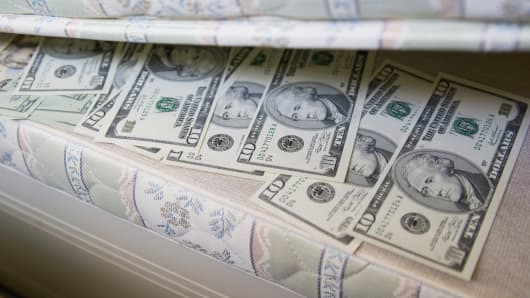Caution is key for many investors at the moment – but is it really time to hide your cash under the mattress?
The experts who are telling investors not to panic and continue to take risks may yet be proven right – but there are an increasing number of unprecedented unknowns and potential pitfalls.
Disappointing global growth, particularly in China, the end of the quantitative easing era, weak company earnings and concerns about when the U.S. Federal Reserve will start raising interest rates are among the most important factors causing confusion.
"Never have we seen so many clients who just do not know what is happening and have cashed up," equity analysts at Credit Suisse recently flagged.





